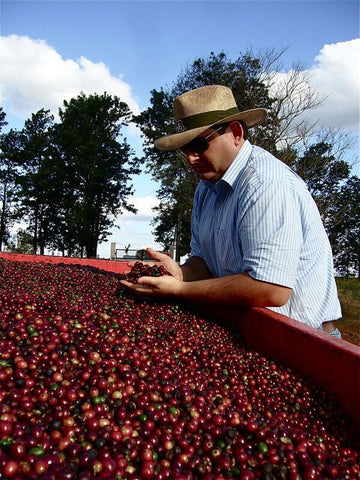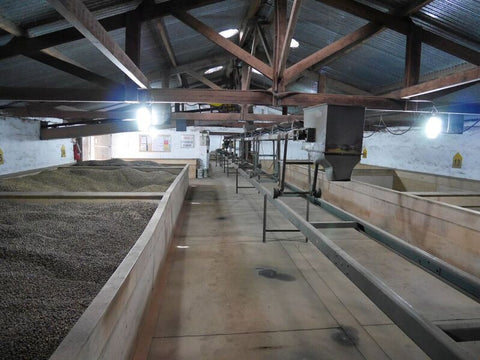برازيل بارانا
المزرعة: فازيندا كلفورنيا
النوع: ١٠٠٪ موندو نوڤو
الطريقة: مغسولة تماما
الارتفاع: ٨٠٠ متر فوق سطح البحر
Luiz Rodrigues :المالك
Jacarezinho :المدينة
Norte Pioneiro do Paraná: المنطقة
الدولة: البرازيل
2015 Brazil COE, #16 :الجوائز

Norte Pioneiro do Paran تقع على الحدود الجنوبية من حزام القهوة في العالم
المزرعة تنتج القهوة المختصة و يتميز مناخها بانه مناخ استوائي دافئ في الثلاث السنوات الماضية، كانت المزرعة تحصد القهوة مكانيكيا بواسطة اختراع لويس. هذا الاختراع اعطى المزرعة امكانية حصد واختيار اجود الانواع من المحصولات.

في الوقت الحاضر، المزرعة تمارس خمس طرق لمعالجة القهوة: مغسولة تماما(وهي طريقة استثنائية في البرازيل)، تلبيب عسلي (الاسود والاصفر) واخيرا تجفيف طبيعي. طريقة اختيار كل مجموعة من القهوة في المزرعة تحدد بالمناخ في ذالك الوقت وخصوصا في مراحل التجفيف. والمزرعة تقوم بمعالجة كميات كبيرة من قهوتها بالترطيب. ولكن في الجو المشمس الدافئ تفضل المزرعة استخدام التلبيب العسلي. بعد ان تتم عملية الاختيار ترسل القهوة الى المصنع لإخراج اللب وتترك في منطقة مكشوفة لتجف. ولكن في بعض الاوقات حالة الطقس الغير المتوقعة تأثر على عملية تجفيف القهوة، فقامت المزرعة بدمج بين اساليب التجفيف الطبيعية التي تعتمد كليا على اشعة الشمس و والاساليب المكانيكية الذي يتحكم فيها المزارع.
بعد ذلك ترسل القهوة الى مستودعات المزرعة لتجهز لعملية تذوق القهوة لختبار جودتها وبعد ذالك تكون جاهزة للتصدير


